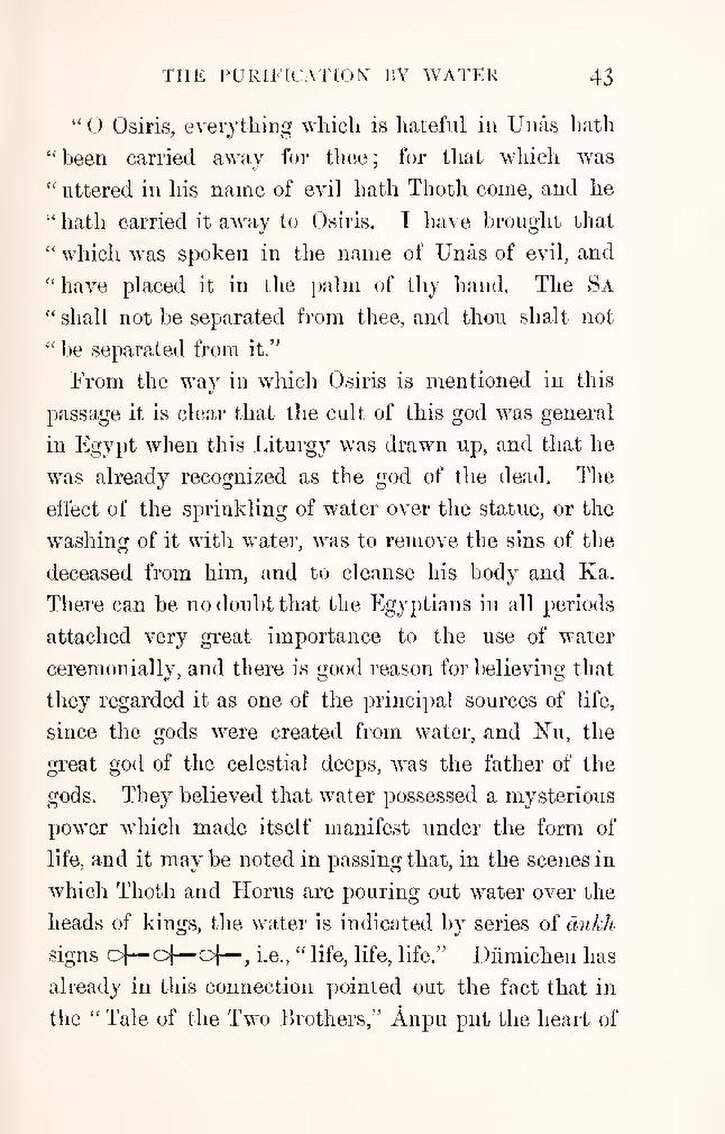"O Osiris, everything which is hateful in Unȧs hath been carried away for thee; for that which was uttered in his name of evil hath Thoth come, and he hath carried it away to Osiris. I have brought that which was spoken in the name of Unȧs of evil, and have placed it in the palm of thy hand. The Sa shall not be separated from thee, and thou shalt not be separated from it."
From the way in which Osiris is mentioned in this passage it is clear that the cult of this god was general in Egypt when this Liturgy was drawn up, and that he was already recognized as the god of the dead. The effect of the sprinkling of water over the statue, or the washing of it with water, was to remove the sins of the deceased from him, and to cleanse his body and Ka. There can be no doubt that the Egyptians in all periods attached very great importance to the use of water ceremonially, and there is good reason for believing that they regarded it as one of the principal sources of life, since the gods were created from water, and Nu, the great god of the celestial deeps, was the father of the gods. They believed that water possessed a mysterious power which made itself manifest under the form of life, and it may be noted in passng that, in the scenes in which Thoth and Horus are pouring out water over the heads of kings, the water is indicated by series of ānkh signs
| |
, i.e., "life, life, life." Dümichen has already in this connection pointed out the fact that in the "Tale of the Two Brothers," Ȧnpu put the heart of
